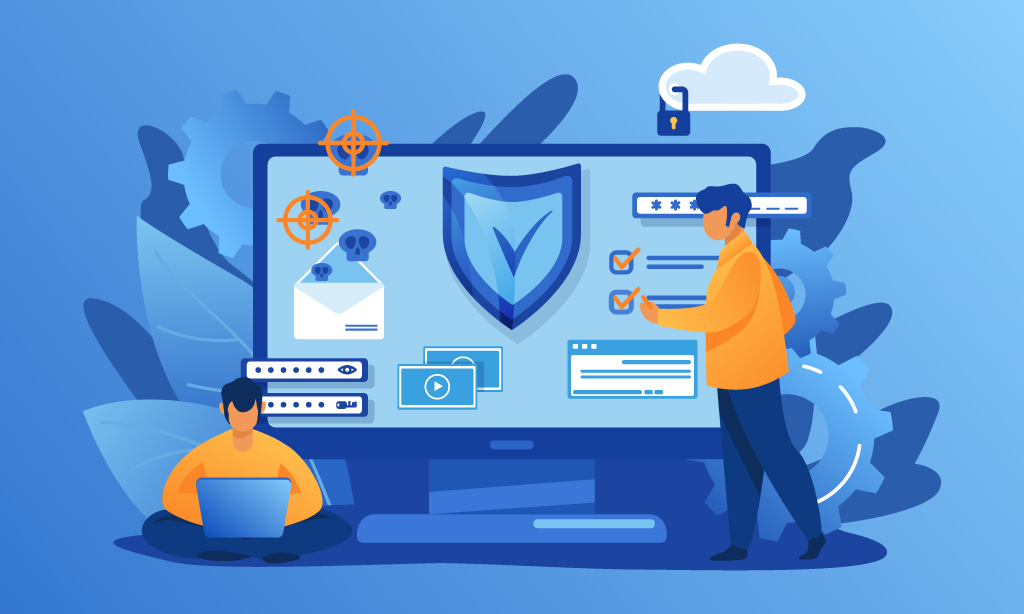Web hosting is the key role player when it comes to website building. It really doesn’t matter which CMS you use but you must choose a host that allows you to build a standalone website for your personal blog or business purpose. In case you’re looking for a reliable host, then VernalWeb is here for you. We’re offering cutting-edge hosting plans for you. However, this article is not about hosting plan selection. Here you’ll be able to know about web hosting security best practices.
So, why you should secure your web hosting? Well, it’s an important matter. As a website owner, you should secure your host no matter what it takes. Because your website is the pillar of your website and the host is the pillar of your site. So, taking security measurement is important. Let’s see all the web hosting security measures,
8 Web Hosting Security Best Practice
1. Keeping Backups
The most important part of any web hosting security measures is keeping backup files to restore anything. Firstly, check your web hosting service whether it has the backup and restore policies. Comparatively, almost every hosting service has its own backup and restore policies. However, you should check how often the host conducts the backup and how far they can restore the files you lose. Another thing you must observe how the hosting service keeps the backups? Just make sure they keep all the backups far away from the main server for better security.
2. Network Monitoring
Diligent network monitoring can assure stronger security for your site. You should ask your hosting support team how often they monitor the network. Always remember, consistent network monitoring can stop malware attacks and intruders’ penetration on the server. A good hosting service provider will definitely follow a well-established network monitoring policies.
3. SSL, Firewalls, and DDoS Prevention
SSL or socket security layer ensures standard security to your server. Firewall, on the other hand, doesn’t allow unusual interference on your server. The firewall is a perfect shield against DDoS attacks. Ask your provider if they have enough security shield for you. Firewall is always helpful when it comes to standing against DDoS attack. The DDoS attack is something that sends the overwhelming amount of unusual traffic to the target machines, server, or site to slow or shown it down. So, firewall and SSL can easily manipulate the situation on your behalf and can save the day.
4. Malware Scan and Remove
You and your hosting provider both have some preventive measures to follow for the sake of your server and site. Just know what you should do and what your hosting provider should. Is your provider scanning your account regularly? Does your hosting provider run a malware scan or antivirus to protect the server? If they do then how often they do it? Ask your provider about every single security initiatives that matter to you. Just be sure that everything is going up to the mark. Keep yourself updated with the latest hosting service and features they offer.
5. Availability and Recovery
Check if your hosting service provider has 99.9% uptime or even better. See whether your server has the bare-metal image available or not. It works great and beyond the file backup process. So, this is the perfect recovery system for you. Your hosting service should run perfect hardware to guard against downtime caused by hardware failures. To ignore server downtime, multiple servers work together with the same copy of your site data that decreases the possibilities of server slow down.
6. File Management
File management plays a crucial role when it comes to web hosting security. All the files and contents you have been on your server. However, all the access points on your server are remote. It doesn’t even require you to go to your server to add, edit, or remove any content physically. So you should always use FTP with a complicated password for all the file transfer process as well as maintenance.
7. Update OS, Software, and Extensions
You should keep your software, plugins, and extensions updated whenever the latest version comes out. You should also update your operating system. Updating and upgrading software can make huge differences when it comes to security. So, don’t fall behind than others and keep yourself updated. You should also review the codes that you use during website building.
8. Choose a Reliable and Managed Hosting Provider
Choosing a reliable host is the cornerstone of web hosting security. Make sure that your hosting provider is ready to give all the benefits and security you need. If you’re confused regarding finding a good hosting provider you can check our web hosting plans.
Conclusion
Finally, we’ve come to an end with the set of web hosting security steps everyone should follow. These security measurements are helpful enough to secure your server, websites, and business at the same time. Hopefully, this article was helpful enough to give you a proper idea of hosting security. You can share this article to let other people know and you can share your thoughts with us as well.


Leave a Reply